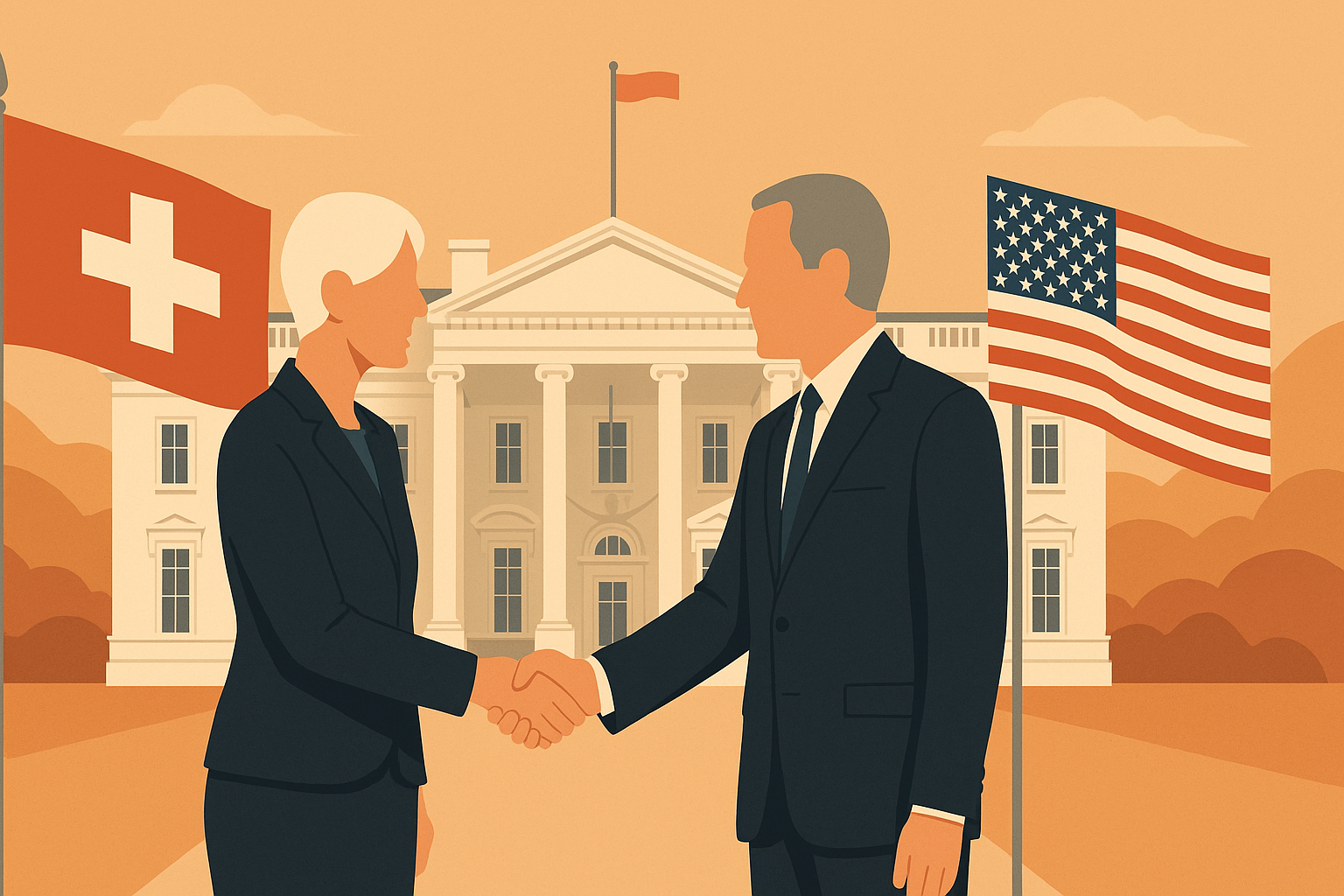Switzerland’s President Karin Keller-Sutter and Economy Minister Guy Parmelin are heading to Washington this week in a high-stakes attempt to persuade the White House to roll back a steep tariff recently imposed by the United States. The move comes as Switzerland scrambles to address one of the most aggressive trade measures taken by the U.S. under President Donald Trump’s renewed protectionist agenda.
The Swiss government announced Tuesday that the visit is aimed at presenting “a more attractive offer” to the U.S., taking American concerns into account in hopes of reducing the new 39% tariff on Swiss exports — one of the highest rates in Trump’s current trade campaign. The new rate is set to come into force on August 7, replacing an earlier 31% tariff announced in April.
Sudden Escalation
Swiss officials were caught off guard when the 39% tariff was imposed last week, with Trump citing America’s “huge” trade deficit with Switzerland as justification. President Keller-Sutter, however, has disputed media claims that her recent phone call with Trump contributed to the tariff hike. Swiss negotiators had reportedly hoped to secure a more modest rate closer to 10% through ongoing dialogue.
According to Swiss officials, the U.S. trade deficit with Switzerland was $22 billion in January, but recent figures show a reversal. In May, the U.S. actually ran a $4.2 billion surplus in goods trade with Switzerland, largely attributed to pre-emptive stockpiling by pharmaceutical companies ahead of Trump’s earlier tariffs.
Emergency Response
In response to the U.S. decision, the Swiss cabinet held an extraordinary session on Monday. Sources indicated that greater involvement from Economy Minister Parmelin’s department was discussed, with the aim of enhancing Switzerland’s negotiating power in Washington.
Parmelin, who also serves as Vice President and is a member of the right-wing Swiss People’s Party, has advocated for revising Switzerland’s offer. Over the weekend, he suggested increasing Swiss investment in the U.S. — including in American liquefied natural gas (LNG) imports — as part of a new trade concession package.
The delegation also includes Helene Budliger Artieda, State Secretary for Economic Affairs, and Daniela Stoffel, State Secretary for International Finance.
Trade Friction and Economic Impact
Swiss business groups have criticized the U.S. tariff as arbitrary, warning that it threatens tens of thousands of jobs across key sectors including watchmaking, machinery, pharmaceuticals, chemicals, and food. These industries are heavily reliant on access to the U.S. market.
Despite the U.S. tariff hikes, the Swiss government noted that it had taken steps to liberalize trade, having eliminated all tariffs on industrial goods as of January 2024 — a move that allows more than 99% of U.S. goods to enter Switzerland tariff-free.
President Keller-Sutter has publicly expressed regret over her government’s failure to finalize a settlement with the U.S. in earlier rounds of negotiations. Talks with U.S. Trade Representative Jamieson Greer and Treasury Secretary Scott Bessent had led Swiss officials to believe a tentative 10% tariff compromise was within reach.
The outcome of the upcoming Washington visit will be critical for Swiss exporters and could shape broader trade dynamics between the U.S. and its European partners as President Trump intensifies his push for bilateral trade “rebalancing.”








